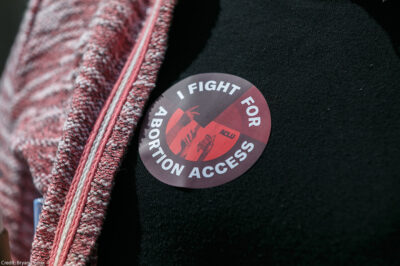Supreme Court Puts Hold on Enforcement of "Partial-Birth" Abortion Bans in Illinois and Wisconsin
FOR IMMEDIATE RELEASE
NEW YORK — Today U.S. Supreme Court Justice John Paul Stevens put on hold enforcement of so-called “partial-birth abortion” bans in Illinois and Wisconsin until the Supreme Court either declines to hear the cases or accepts review and decides the cases on their merits.
We are grateful to Justice Stevens, and enormously relieved for the physicians and clinics we represent in Illinois, for their patients, and for the women of Wisconsin, that the bans in those states will remain unenforceable pending Supreme Court review.
In issuing the stay, Justice Stevens joined the overwhelming majority of judges who have viewed these bans as constitutionally suspect. In 18 of the 20 states where “partial-birth abortion” bans have been challenged, the courts have prevented or strictly limited their enforcement. In nearly every case, the injunction was based in part on the court’s conclusion that the ban at issue would prohibit safe and common abortion procedures performed well before fetal viability, in violation of the constitutional right to reproductive choice.
The United States Court of Appeals for the Seventh Circuit had previously denied motions to stay the enforcement of its own decision upholding the bans. While the Circuit split 5-4 in its controversial Oct. 26 ruling that the bans are constitutional, a new judge, Anne Williams, has been sworn in since that time. She voted with the dissenters who would have stayed the court’s decision and prevented the statutes from taking effect. The Seventh Circuit thus split 5-5 in its most recent ruling, denying a stay.
Because the Seventh Circuit is now evenly divided against itself, and because its decision directly conflicts with earlier decisions by the Eighth Circuit invalidating so-called “partial-birth abortion” bans in Arkansas, Iowa, and Nebraska, we think it likely that the Supreme Court will decide to hear one or more of the cases coming before it. If so, it will be the first time since the ACLU argued Planned Parenthood v. Casey in 1992 that the Supreme Court will hear arguments in a case involving abortion rights.
The cases at issue are Hope Clinic vs. Ryan, A-427, and Planned Parenthood of Wisconsin vs. Doyle, A-428.
Stay Informed
Sign up to be the first to hear about how to take action.



